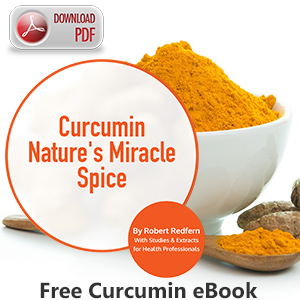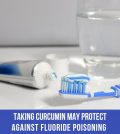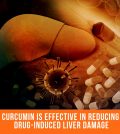Curcumin and Anti-Aging
![]() Wouldn’t it be wonderful if you could set loose inside your body a microscopic cleaning crew that would hunt down and remove harmful microorganisms and waste products?
Wouldn’t it be wonderful if you could set loose inside your body a microscopic cleaning crew that would hunt down and remove harmful microorganisms and waste products?
Actually, that crew already exists, working hard every hour to keep you healthy. It’s a force made up of cells called macrophages that have the capacity to attach to connective tissue or travel throughout the blood stream where they overwhelm microorganisms that can do you harm. And while macrophages are very effective at what they do, sometimes they need a little help.
Researchers at UCLA have produced evidence that a common spice might be just the help that microphages need to protect the brain from Alzheimer’s disease.
Crossing the barrier
Studies have shown that the active chemical in marijuana (THC) may help control the buildup of amyloid plaques in the brain that contribute to Alzheimer’s disease (AD). Of course, THC has yet to be legalized for medicinal purposes, but there’s growing evidence that curcumin may also be an effective amyloid plaque inhibitor.
Curcumin is a yellow pigment in the root of turmeric. Curry gets its distinctive color and flavor from curcumin. But in addition to its culinary appeal, curcumin is a natural antioxidant and inflammatory that has been used by Indian Ayurvedic healers for thousands of years to treat indigestion, arthritis, and urinary tract disorders.
In a UCLA study, aging mice with advanced amyloid accumulation in the brain were injected with curcumin. Results showed that curcumin was able to cross the blood-brain barrier and bind to beta amyloid, which helped block amyloid plaque aggregation.
Clean up crew
In the September 2006 issue of the Journal of Alzheimer’s Disease, another UCLA team reported on a study that tested the effects of curcumin on AD.
STUDY ABSTRACT
- Researchers took macrophage samples from six AD patients and three healthy control subjects
- When macrophage samples were tested for their ability to bind with amyloid, uptake efficiency was found to be significantly lower in the AD samples, compared to the control samples
- Macrophage samples were then exposed to curcumin for 24 hours
- Amyloid uptake efficiency was significantly increased in half of the AD macrophage samples treated with curcumin
- Curcumin was more effective in macrophage samples taken from patients with early-stage AD
- Curcumin had no effect on macrophage samples from healthy subjects
UCLA researchers Laura Zhang told NutraIngredients-USA that the next step in their research will be it identify the factors that helped the immune cells respond. Meanwhile, the UCLA Alzheimer’s Disease Research Center has begun a clinical trial with human subjects to study the effect of curcumin supplements in AD patients.
Precautions
Alzheimer’s rates in India (where curcumin is widely consumed in curry dishes) are among the lowest in the world. But for most of us here in the west it’s not really practical to sharply increase our dietary intake of curry.
Curcumin supplements can be found in health food stores and through many Internet sources. But curcumin users should be aware of these precautions:
- Indigestion is one of the conditions curcumin is used to address, but large doses my cause ulcers in some patients
- Curcumin has been shown to lower cholesterol by prompting the liver to discharge bile, but this can be a problem for anyone with an obstruction of the biliary tract
- Curcumin thins the blood, so it should not be taken with anti-coagulants or anti-inflammatory drugs.
Talk to your doctor or a health care professional before taking curcumin supplements.
Sources:
“Curcuminoids Enhance Amyloid-B by Macrophages of Alzheimer’s Disease Patients” Journal of Alzheimer’s Disease, Vol. 10, No. 1, September 2006, j-alz.com
“Curcumin Could Cut Plaque Build-Up Linked to Alzheimer’s” NutraIngredients-USA, 10/4/06, nutraingredients-usa.com






